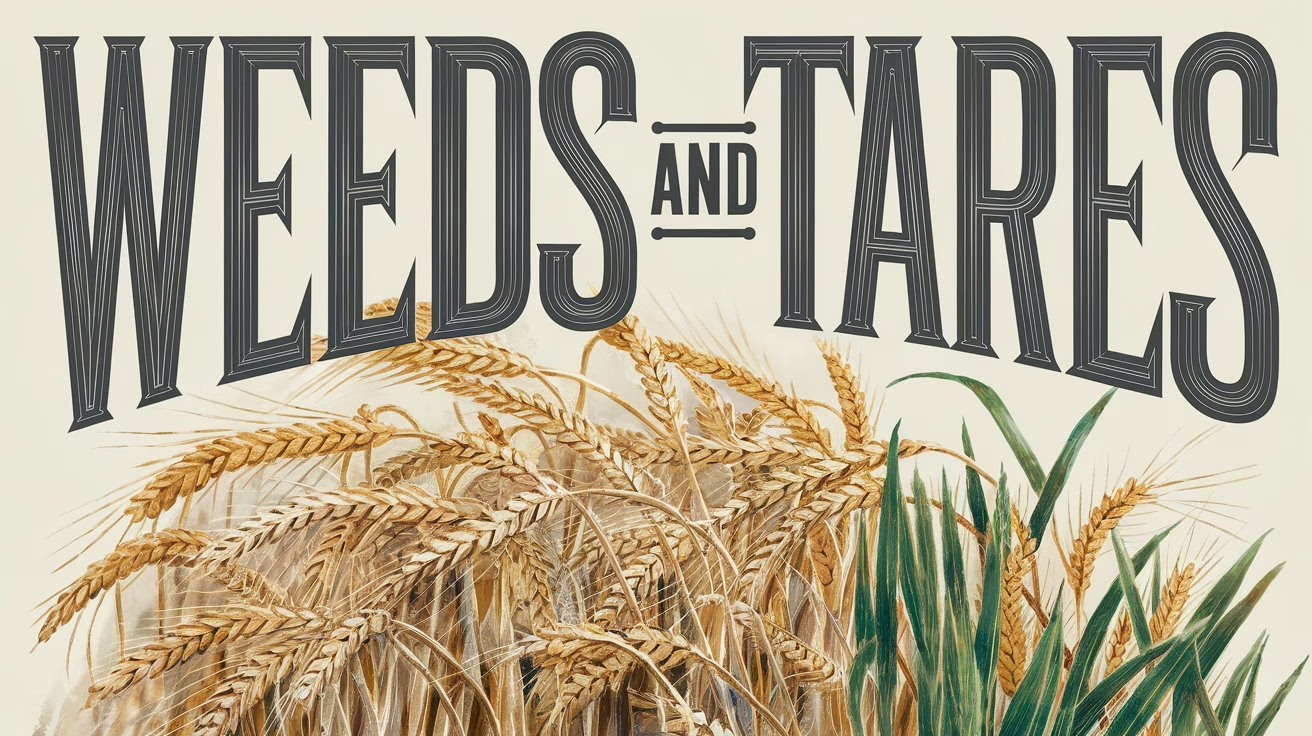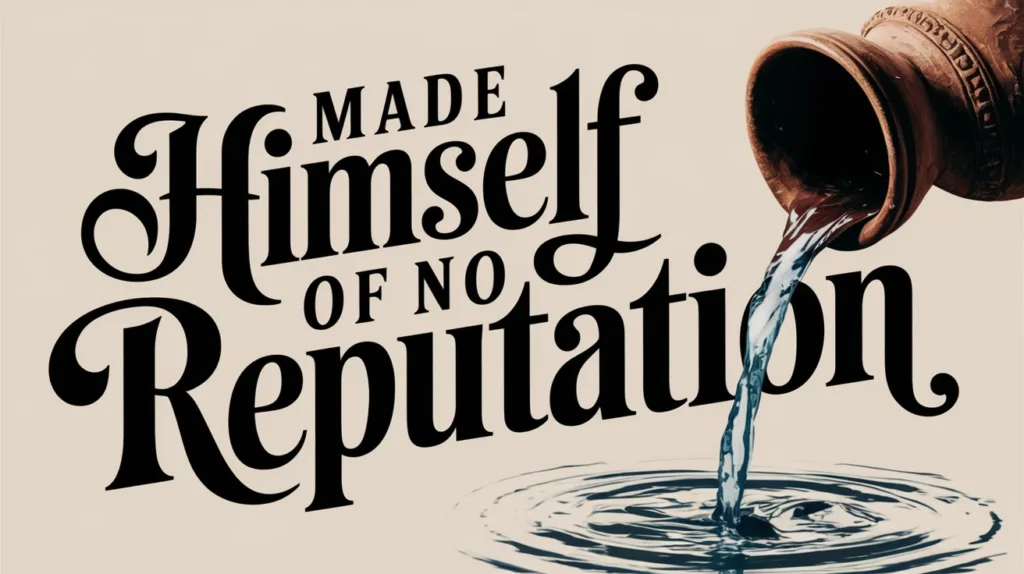The Parable of the Weeds, also known as the Parable of the Tares, is one of Jesus’ teachings about the kingdom of heaven found in Matthew 13:24-30. It provides a profound insight into the presence of both true and false believers within the church and offers us guidance on how to respond. This parable also helps us distinguish between false believers (tares) and false teachers, who play different roles within the body of Christ.
The Parable Explained: Wheat and Tares Together
In this parable, Jesus describes a man who sows good seed (wheat) in his field. However, while everyone was sleeping, an enemy came and sowed tares (weeds) among the wheat. When the plants began to grow, the tares became noticeable. The servants asked if they should pull out the tares, but the master instructed them to wait until the harvest.
Matthew 13:24-30: “The kingdom of heaven is like a man who sowed good seed in his field; but while men slept, his enemy came and sowed tares among the wheat and went his way. But when the grain had sprouted and produced a crop, then the tares also appeared. So the servants of the owner came and said to him, ‘Sir, did you not sow good seed in your field? How then does it have tares?’ He said to them, ‘An enemy has done this.’ The servants said to him, ‘Do you want us then to go and gather them up?’ But he said, ‘No, lest while you gather up the tares you also uproot the wheat with them. Let both grow together until the harvest.’”
Who Are the Tares? False Believers Among the True
The tares in this parable represent false believers: people who appear outwardly to be part of the kingdom but do not possess genuine faith. Jesus explains the parable to His disciples later in the chapter:
Matthew 13:37-39: “He who sows the good seed is the Son of Man. The field is the world, the good seeds are the sons of the kingdom, but the tares are the sons of the wicked one. The enemy who sowed them is the devil, the harvest is the end of the age, and the reapers are the angels.”
The wheat symbolizes true believers, while the tares are those sown by the devil: individuals who look similar to believers but lack true faith. They may participate in church activities, profess belief, and appear religious, but their hearts are not transformed. Jesus warns us that these false believers will be among us until the end of the age.
Why Aren’t the Tares Removed Immediately?
The parable shows the wisdom and patience of God. The master instructs the servants not to pull up the tares immediately because they might also uproot the wheat. The reason for this is twofold:
- Premature Judgment Can Harm True Believers:
- Just as pulling up tares could damage the roots of the wheat, harsh judgment and attempts to remove false believers can cause harm to genuine believers. We may not always discern correctly who is truly saved, and God’s patience allows time for growth and repentance.
- God Desires Repentance, Not Destruction:
- God is patient and desires that all come to repentance (2 Peter 3:9). By allowing the tares to grow alongside the wheat, there is an opportunity for those who are false believers to hear the gospel, repent, and come to genuine faith.
False Believers vs. False Teachers: A Key Distinction
It is important to distinguish between false believers (tares) and false teachers, as Scripture treats them differently. While false believers may be deceived about their own faith, false teachers are actively spreading deception and leading others astray.
False Believers (Tares): Deceived but Passive
False believers are those who may sincerely believe they are Christians, but their faith is not genuine. They blend in with true believers and often participate in church life. However, their actions and fruit reveal a heart that has not truly been transformed by the Holy Spirit.
2 Corinthians 13:5: “Examine yourselves as to whether you are in the faith. Test yourselves. Do you not know yourselves, that Jesus Christ is in you?—unless indeed you are disqualified.”
The Bible encourages us to guide and disciple these individuals, sharing the truth with them and praying for their salvation. Jesus did not instruct us to uproot the tares but to leave them until the harvest, indicating that our role is to minister to all people, trusting God with the final judgment.
False Teachers: Deceptive and Active in Leading Others Astray
In contrast, false teachers are those who intentionally spread false doctrines and lead others away from the truth of the gospel. The Bible speaks strongly against false teachers and warns us to be vigilant.
2 Peter 2:1: “But there were also false prophets among the people, even as there will be false teachers among you, who will secretly bring in destructive heresies, even denying the Lord who bought them, and bring on themselves swift destruction.”
False teachers are described as wolves in sheep’s clothing (Matthew 7:15), actively seeking to deceive and harm the flock. Unlike the tares (who may be deceived themselves), false teachers are deliberate in their efforts to corrupt the truth. The Bible instructs us to rebuke and expose false teachers (Titus 1:9-11, Ephesians 5:11) and not to tolerate their influence within the church.
1 Timothy 6:3-5: “If anyone teaches otherwise and does not consent to wholesome words, even the words of our Lord Jesus Christ, and to the doctrine which accords with godliness, he is proud, knowing nothing… From such withdraw yourself.”
Our Role as Believers: Sow Seeds and Trust God’s Judgment
The parable of the weeds teaches us that while false believers (tares) may exist among true believers, our task is not to judge and uproot them prematurely. Instead, we are called to sow seeds of the gospel, minister in love, and leave the final judgment to God.
- Preach the Word to All:
- Our responsibility is to share the gospel with everyone, regardless of whether we suspect them to be genuine or false. We plant seeds and water them, but it is God who gives the increase (1 Corinthians 3:6-7).
- Trust God’s Timing:
- The harvest is at the end of the age, and God is the ultimate Judge. He knows those who are His (2 Timothy 2:19). The separation of the wheat and the tares will be done by God’s angels, not by us.
Matthew 13:41-42: “The Son of Man will send out His angels, and they will gather out of His kingdom all things that offend, and those who practice lawlessness, and will cast them into the furnace of fire. There will be wailing and gnashing of teeth.”
- Brush the Dust Off and Move On:
- If someone rejects the truth, we are instructed to brush the dust off our feet (Matthew 10:14) and continue spreading the gospel. We are not responsible for the outcome, only for our obedience in sharing the message.
My Final Thoughts
The parable of the weeds teaches us about the reality of false believers within the church and the wisdom of God in allowing them to remain until the final judgment. It also highlights the difference between those who are passively deceived (tares) and those who actively deceive others (false teachers).
As Christians, our focus should be on sowing the seeds of the Word, loving people, and patiently trusting God with the harvest. We disciple and guide those who may be false believers, helping them find the truth in Christ, while remaining vigilant against the influence of false teachers who lead others astray.
In the end, God’s perfect justice will prevail, and He will separate the wheat from the tares. Until then, we continue preaching the Word, knowing that His Word will not return void (Isaiah 55:11).





 Get the book that teaches you how to evangelize and disarm doctrines from every single major cult group today.
Get the book that teaches you how to evangelize and disarm doctrines from every single major cult group today.